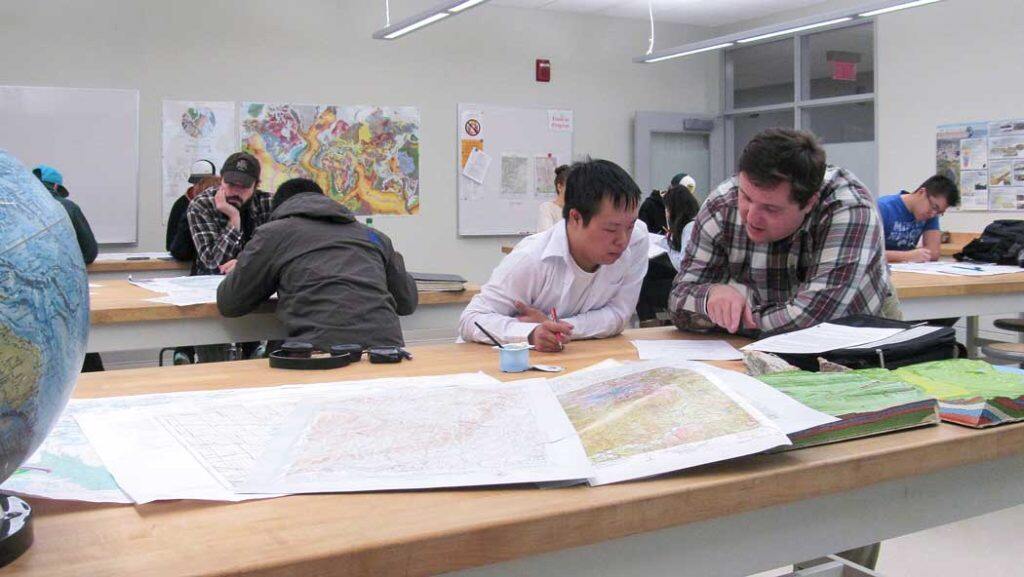Shortly after graduating from high school in 2009, Katie Clegg joined the provincial Transitional Vocational Program, designed to help young people with mild developmental disabilities acquire skills for employment.


That’s where she heard about an opportunity that would profoundly change her life.
Since 1987 the University of Alberta’s On Campus program has been immersing differently abled students in the full university experience, where they flourish and grow alongside registered students. Though they don’t earn degrees, they can take courses, join clubs and volunteer, and enjoy fitness and other recreational pursuits.
For Clegg, the program opened her eyes to horizons she never knew existed while learning about subjects that ignited her imagination.
“My favourite course was ancient history, learning all about Greece and Rome,” she says. “Now I just want to go and see it in person. I’ve been reading about it and looking at pictures. Now I’m reading a book about Socrates, so now I want to go even more — that’s my dream.”


On Campus was the first program of its kind in the world, a true beacon of post-secondary inclusivity. It began when a group of parents were disheartened with their kids’ limited prospects in life, says program director Franciess Fay-Ohlsen, who began working for On Campus at its inception as a practicum student.
“They wanted their adult children to have the same opportunities and experiences as their siblings who didn’t have disabilities,” she says.
In the years since, the program has evolved, becoming more sophisticated and placing a greater emphasis on self-reliance and independence. This year, 11 students are enrolled, taking three or four courses each semester.
“I’ve had to explain to parents that their ‘child’ is no longer a child. It gives them permission to actually let their kids grow up, to see them as adults and expect adult things from them.”
In the beginning, On Campus participants were not allowed to attend convocation. They now proudly cross the stage wearing the cap and gown alongside their peers.
Over the course of four years, each student is assigned an educational facilitator to help with navigation, choosing courses, modifying course content and assignments and gaining access to extracurricular activities. Facilitators also connect participants with other students and class volunteers throughout each semester and ultimately assist with securing employment during the summer months and permanent employment upon graduating.
Course assignments in everything from drama to earth and atmospheric sciences are tailored to individual needs. Depending on ability, some may do written work on a given topic; others might present orally.
“They don’t have to understand everything,” says Fay-Ohlsen, “and they don’t have to do every assignment in every class, but we want them to do what they can do — we challenge them. We expect them to show us what they’re learning.”
“While most students attend class independently, others require greater assistance,” says Fay-Ohlsen, adding that there are always at least two placements for those who have higher needs and require one-to-one support.
They may require assistance with communication, personal safety and personal care, or may not require the use of a wheelchair and have a personal facilitator at all times to facilitate communication with fellow students, inclusion in classes, group work and all university-related academic and social activities, she says.
On Campus is now networked with other post-secondary schools in Alberta to offer similar programming closer to home.
Once they’ve graduated, students may receive support in finding employment through Alumni Employment Supports, which now helps 28 On Campus graduates with customized workplace assistance.
“We have graduates who have held jobs for years, including office work, daycare and retail,” notes Fay-Ohlsen.
“One or two have been in their jobs for 20+ years, and we have someone requiring 1:1 support who works at Walmart in the clothing department putting clothes back up on the racks, folding clothes using the table on her wheelchair, and returning clothing from the change rooms. There really are ways to include people in everything.”
After graduating from On Campus in 2014, Clegg has been working at Open Circle Benefits, which provides a variety of employment benefit services, since 2017.
“I just love the company and the people,” she says. “I’m now working permanent part-time, doing data entry, mailouts, scanning and social planning.
“The On Campus program gave me self-confidence and independence. They’re just really caring, awesome people, and without their companionship and teaching, I would still be feeling nervous — it was amazing.”







































